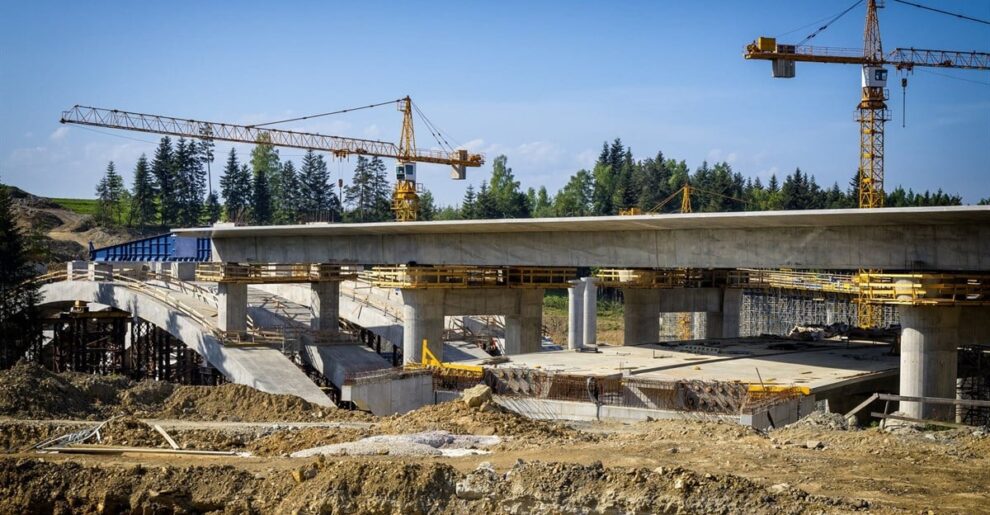Decades of consistent investment in infrastructure have been instrumental in fostering and preserving a robust base of engineering expertise within South Africa, particularly among consulting engineers. Andrew van Zyl, managing director of SRK Consulting, emphasises the pivotal role of consulting engineers in upholding exacting standards in project planning and execution. These professionals offer highly specialised technical and strategic services across various industries.
Van Zyl elaborates that their independent contributions fortify project quality and ensure clients, whether from the private or public sector, receive value for money. The relative resilience of the mining sector has kept the company busy in recent years, owing to its extensive history in this sector, Van Zyl added.
Upward trajectory
“However, it is really only a sustained and upward trajectory of broader economic growth that will secure South Africa’s vital skills base in the consulting engineering sector,” he said. “It is becoming an urgent necessity that public sector spending on infrastructure rises and stabilises; this will support the creation of a firmer foundation for the country to maintain and further develop its expertise among consulting engineers.”
He emphasised that the quality of the consulting engineering industry in any country relies on the steady growth of experience across multiple disciplines over decades, not just years.
“Here in South Africa, we have been struggling to generate and retain these skills,” he noted. “Many specialisations are in high demand internationally, so we are also competing with other countries for these scarce skills.”
Highs and lows
The mining sector was by its nature cyclical, and this created regular fluctuations in the demand for specialised consulting engineering input. This often made it challenging for companies to retain and foster the expertise required by mines, especially during commodity price slumps.
It was therefore important that other sectors of the economy were also vibrant, so they could help to temper the highs and lows of the commodity cycle.
“Buoyant commodity prices in recent years have kept consulting engineers very busy – with considerable scarcity in some disciplines,” he said. “However, the construction and infrastructure sector remains subdued, and this has depressed the demand for important skills that the infrastructure sector will need in the long term.”
Returning to the vital role that consulting engineers play in both the public and private sectors, he said these experienced professionals provide independent advice on how to plan and implement quality engineering solutions for a modern economy.
Nurturing best minds
“The disciplines underpinning these solutions take decades to nurture, and invariably demand some of the best students that the educational system can generate,” said Van Zyl. “We need to be cultivating these skills and interests among the country’s best students, which means supporting students and mentoring graduates.”
He highlighted that, in practice, this could only be successfully accomplished in a growing economy that can make full use of this expertise, and where careers can be built.
“It should be remembered that consulting engineers really drive the implementation of global best practice in a range of sectors that must compete on the international stage,” he said. “Only by keeping up with these global benchmarks can South Africa’s economy remain competitive and aligned with the expectations of investors and regulators.”
Evolving mandate
The mandate of consulting engineers is also evolving, he pointed out. Today, it is necessary not only for engineering structures to be technically sound, cost-effective and safe, but they must also be environmentally and socially responsible. These latter aspects of projects are now an essential requirement for businesses to operate globally.
“This approach also ensures that economic development occurs within a sustainable and responsible framework – including complying with legal regulations and other compliance requirements,” he said.
“By applying these factors, consulting engineers contribute to building an inclusive and job-creating economy; at the same time, they help ensure that business is transparent and predictable – which are important considerations for investors.”
In line with these trends, SRK has built its expertise in the environmental, social and governance (ESG) field, including issues like climate change resilience, water stewardship and decarbonisation. The consulting engineering field has also embraced the opportunities offered by digital technologies, with SRK investing in its data science capabilities to enhance the application of scientific and engineering skills.
Van Zyl noted that the consulting engineering sector was resilient, and despite years of underspending in public infrastructure, South Africa still retained a high level of skill and capability that in many respects compared well globally.
Source : Zawya
















